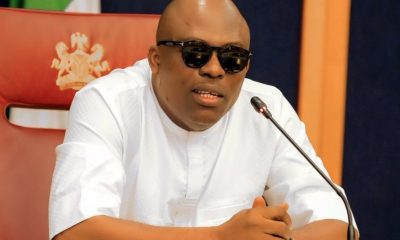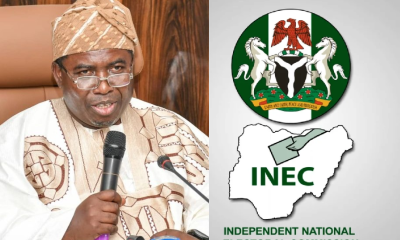Gbadebo Rhodes-Vivour, the Labour Party’s governorship candidate in the 2023 general election, has accused President Bola Tinubu’s administration of implementing economic reforms that disproportionately benefit a select group while leaving the majority of Nigerians in economic distress.
Speaking during an interview on Channels Television on Thursday, Rhodes-Vivour expressed deep concern over the widespread hardship faced by ordinary Nigerians as a result of the government’s policies.
Since assuming office in May 2023, President Tinubu has introduced significant economic reforms, including the removal of fuel subsidies and the floating of the naira, Nigeria’s currency.
While the administration touts these measures as necessary for economic stability, Rhodes-Vivour argues that their implementation has exacerbated the financial struggles of the average Nigerian.
“The people are experiencing unprecedented hardship. Today, over 70 percent of people’s income is spent on transportation and food,” Rhodes-Vivour said. “They’ve not even started to think about how they can afford accommodation.”
Rhodes-Vivour criticized the administration for fostering a culture of wastefulness and extravagance that he believes is disconnected from the harsh economic realities faced by the masses.
READ ALSO: Rhodes-Vivour scolds Tinubu over national prayer, advocates quality leadership
“We have a situation where there is a culture of wastefulness and extravagance that does not reflect the dire economic situation that the same President is pushing out that needs to be reformed,” he stated.
He further questioned the equity of the reforms, suggesting that their benefits are concentrated among a privileged few. “The only people that seem to be benefitting from these reforms are maybe the bankers, the people in government, and the President’s friends,” he said, challenging the administration to identify tangible benefits for ordinary Nigerians.
Rhodes-Vivour painted a grim picture of the impact of these reforms on the everyday lives of Nigerians, citing skyrocketing costs of basic necessities and dwindling disposable incomes. He emphasized that the government has failed to create a safety net for the majority who are bearing the brunt of these policies.
“How many Nigerians can say they are benefitting from any reform right now?” he asked, pointing to the absence of visible improvements in the quality of life for the average citizen.
The Labour Party stalwart’s comments highlight a growing concern among opposition figures and citizens about the direction of the Tinubu administration’s economic policies. Critics argue that the government must adopt more inclusive strategies to ensure that reforms do not deepen inequality or marginalize vulnerable populations.
As the Nigerian government continues to push forward with its economic agenda, voices like Rhodes-Vivour’s are amplifying the need for reforms that are not only sustainable but also equitable.
His critique underscores a broader debate about balancing economic pragmatism with the welfare of citizens, a challenge that the Tinubu administration must navigate carefully in the months ahead.

 News7 days ago
News7 days ago
 Agribusiness6 days ago
Agribusiness6 days ago
 News6 days ago
News6 days ago
 Education1 week ago
Education1 week ago
 Latest1 week ago
Latest1 week ago
 Football1 week ago
Football1 week ago
 Football6 days ago
Football6 days ago
 Health1 week ago
Health1 week ago

